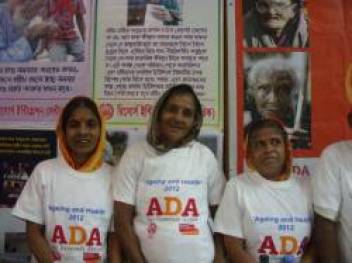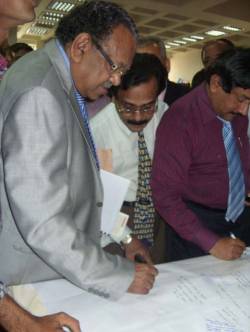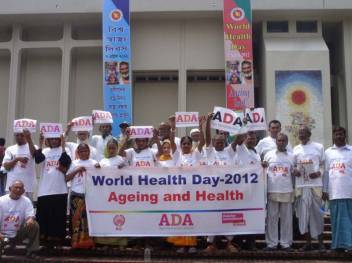 There are no “older people” in Bangladesh and yet one in ten people are soon to be over 60. Confused? I am talking about the murky world of categories and definition. You see, in a country where what constitutes an “older people” is at best vague and inconsistent, what seems like a simple matter of semantics can in fact have significant consequences for millions.
There are no “older people” in Bangladesh and yet one in ten people are soon to be over 60. Confused? I am talking about the murky world of categories and definition. You see, in a country where what constitutes an “older people” is at best vague and inconsistent, what seems like a simple matter of semantics can in fact have significant consequences for millions.
By 2015 the number of people over 60 in Bangladesh is projected to reach 12 million, a figure greater than the combined total populations of Norway, Ireland and Estonia.
No recognition of older people
The health system in Bangladesh is one area of the public sphere where there is no recognition of “older people” as a group. Unfortunately, this has led to a health system where patients over 60 are at risk of becoming less rather than more visible.
In practice, this means that even in the capital Dhaka there is no specialist geriatric care; no budget allocation for medicines associated with ageing and no concessions for older people who can’t afford medical insurance.
It’s not that the government is failing to listen to calls for an age-friendly health system. Indeed, only a few weeks ago, Civil Surgeons (Ministry of Health staff responsible for local health policy) began a round of consultation meetings with older people’s associations from across Bangladesh.
Instead, it is a lack of implementation, at a time when policies for the increasing number of older people are becoming increasingly necessary.
Putting ageing on the agenda
Age Demands Action (ADA) on Health in Bangladesh was an opportunity to put healthy ageing on the public agenda.
To celebrate World Health Day, Resource Integration Centre (RIC), a member of the HelpAge global network organised a number of events. RIC hold the secretariat for the Forum of the Rights of the Elderly in Bangladesh.
The forum organised a special seminar on healthy ageing attended by ministers and representatives from the World Health Organization. Other speakers included Abul Haseeb Khan, Director of RIC and Dr Keramat Ali, an ADA campaigner.
“Doctors in our country are disgusting”
Dr Ali said: “I think doctors in our country are disgusting. The waiting times are intolerable. Most of them are commercially minded and make no special consideration for older people. We have no geriatric medicine in the health curriculum and this should be introduced as quickly as possible.”
Another ADA leader, Dr Begum said: “It seems like the Ministry of Health is taking some of our messages on board but the real question remains whether or not they will act.”
No age limit to good health
At another event on World Health Day, Minister of Health, Dr Ruhul Haque emphasised the need for a health service that considers the needs and contribution of older people at all levels. He joined over 600 others and signed a petition calling for a more age-friendly healthy system.
ADA on Health campaign concluded with a National Consultation event organised by RIC in Dhaka. Dr Mozammel Hossain, President of the Parliamentary Standing Committee on Social Welfare, was a special guest at the consultation event and pledeged to do what he could to make sure the National Policy on Ageing is approved.
He promised to draw the attention of parliamentarians to the issue of definition and whether or not people over 60 should be identified as “Senior Citizens”.
When it comes to a health service that includes older people, it will be action rather than words on which the government will be judged. The enjoyment of the highest attainable standard of health is a human right, which should have no age limit.
Sign the ADA petition to support older people’s right to health.
Read more about Age Demands Action on Health activities.

